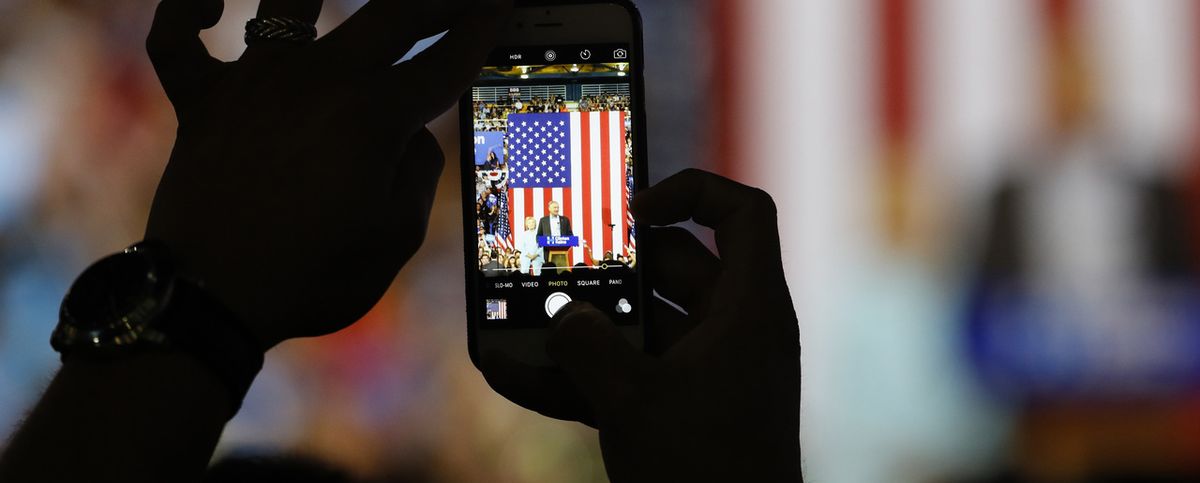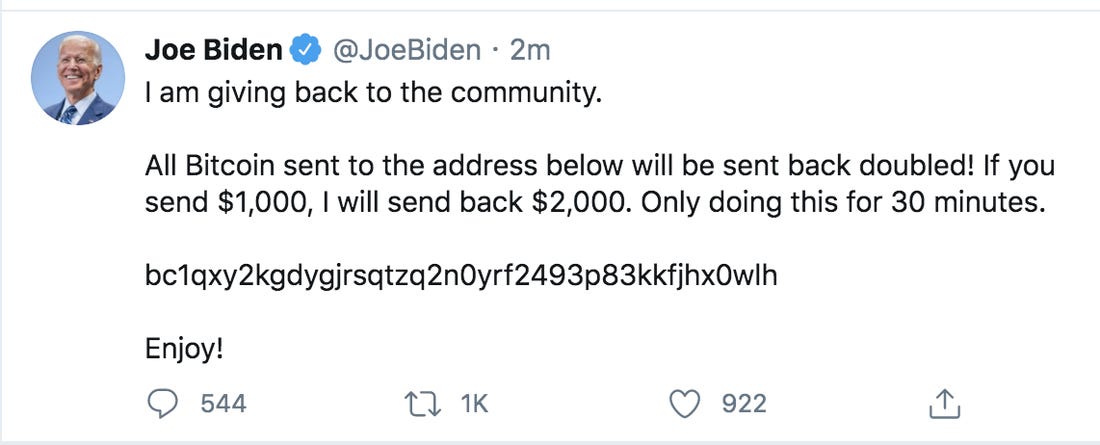Social media companies tighten security with the US presidential election looming

A few minutes every morning is all you need.
Stay up to date on the world's Headlines and Human Stories. It's fun, it's factual, it's fluff-free.
In approaching the 2020 elections in the US, social media companies must grapple with the security of their own platforms as well as the security of the electoral process itself.
Twitter Inc. recently announced new security measures ahead of the election in the United States this November. The announcement follows a data breach in July that resulted in a number of high profile accounts on the platform being hacked.
The new measures, targeting “election related” accounts, such as presidential campaigns, political parties and others, will be made to institute stronger passwords and require two-factor authentication to prevent breaches similar to July’s.
The new measures also come as social media companies are readying themselves for what is likely to be one of the most historic elections in American history, bringing with it a unique set of challenges never before faced in modern electoral history.
Social media companies have been at the center of American election-related scandals before and are hastening to publicize their efforts toward making this year’s election more secure.
It may end up that misinformation and tweets deliberately misleading the voting public are a greater threat to the security of this year’s election than reported breaches of verified accounts, a threat that social media companies still have not adequately addressed.
Twitter’s security
The new measures announced by Twitter come after scrutiny the social media platform has already faced over its security.
In July, some 100 high-profile Twitter accounts were compromised by hackers, who then proceeded to use the large platform accounts to tweet out a Bitcoin scam.
Twitter itself stated that the “coordinated social engineering attack” gave hackers “access to internal systems and tools,” with Twitter forced to briefly prevent verified users from sending out tweets as a security measure.
However, the social media giant stated that no passwords were accessed by hackers and only a handful of accounts had their direct messages accessed.
Even so, former elected officials such as President Barack Obama and Vice President Joe Biden were among those affected.

The new measures will require political and “election-related” accounts to have stronger passwords and will encourage users to adopt “two-factor authentication” as a means to prevent breaches.
Election challenges
This is not the first time social media platforms have faced scrutiny during election season.
Facebook Inc. faced intense criticism and scrutiny after the 2016 presidential election, when it emerged that the social media giant, which has some 220 million users in the US alone, granted access to vast amounts of personal user data to the Cambridge Analytica firm that was then used for political targeting purposes.
It’s not just the security of social media platforms that has raised concerns, but also their use by prominent elected officials to spread misinformation. Concerns over President Donald Trump’s use of social media platforms, in particular Twitter, have raised unique challenges for the upcoming election.
President Trump has frequently been accused of boosting fringe conspiracy theories, including baseless claims about President Obama’s birth certificate and the promotion of QAnon and far-right linked accounts.
In the wake of protests over the police killing of George Floyd in May, Twitter took the unprecedented measure of putting a disclaimer over one of the president’s tweets for “glorifying violence.” Trump’s tweet carried the sentence “when the looting starts, the shooting starts,” suggesting violent reprisals against protesting Americans.
The misuse of social media by prominent accounts, including elected government officials, is arguably one of the greatest threats to a stable election process this November.
President Trump in particular has used his Twitter account – followed by 86.3 million users – to disparage mail-in voting on a near-daily basis, even undermining his own appointed officials who state under oath that no such mass fraud exists with the use of mail-in voting.
Concerns that social media platforms may be abused to dispute the election results and undermine confidence in the voting process have not been lost on the social media giants themselves.
However, social media executives have reportedly been incredibly cautious about taking any decisive action over the issue, effectively allowing harmful misinformation to spread for fear of being labeled biased.
One internal memo by Facebook executive Andrew Bosworth argued that the platform has a moral obligation to refrain from significant interventions that could “change the outcome” of an election, even if that election was rife with misinformation intended to throw off voters or discourage them from voting at all.
Despite this, some efforts have been made to cut down on misinformation by social media companies, particularly in light of concerns that an election winner may not be declared on the night of November 3, owing to the extra time needed to count mail-in votes.
Facebook, for instance, announced in September that it would not accept any new political ads starting a week before the US presidential election. Facebook chief executive officer Mark Zuckerberg stated he was “worried that with our nation so divided and election results potentially taking days or even weeks to be finalized, there could be an increased risk of civil unrest across the country,” a climate that charged political advertisements on social media could contribute to.
The social media company recently expanded upon this new rule, stating that it would reject political ads that claim an early victory before official counting is over, a concern that some have raised could be used by President Trump to delegitimize the actual winner of the election if no outright winner can be declared on the night of November 3.
Twitter and Google Inc. followed Facebook’s lead, announcing that they would also adopt new rules against false claims of election rigging or early victory calls. The new rules for Twitter, in particular, stop short of the company removing offending tweets. Rather, Twitter will continue to “flag” tweets where misinformation exists.
Social media’s role
In approaching the 2020 elections in the US, social media companies must grapple with the security of their own platforms as well as the security of the electoral process itself.
It may be that social media companies find it easier to address security concerns like those exposed in July, where prominent accounts are compromised by hackers but control is swiftly regained and new secure password rules are instituted.
The issue of misinformation, however, especially when coming from figures like the US president himself, has given social media companies more to address.
As tech and social media writer Parker Molloy argues for Media Matters, “It’s because of a deferential news media and timid social media companies that the cost of telling blatant lies remains so low.”
Social media companies do not want to stand accused of interfering in the electoral process or as getting involved in politics more generally, as that would inevitably cause further scandals and possibly lead to doubts from certain sections of the population over electoral integrity.
But failing to ensure that misinformation, falsehoods and threats do not continue without consequences on their platforms could have a greater effect on the security of America’s elections than the removal – or merely the hiding – of posts containing misleading information deliberately intended to undermine the electoral process and favor one political party.
Have a tip or story? Get in touch with our reporters at tips@themilsource.com




Comments ()